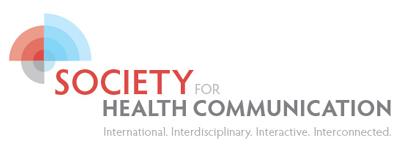The 9th Annual National Summit for Health Communication |
| 3:00 - 5:00 pm |
Registration and Networking Summit participants may engage in networking, meet with Society leadership, and join activities such as resume reviews and career coaching sessions. |
| 5:00 - 7:00 pm |
Networking Reception Summit participants may join a networking event at Shipgarten. This is Society organized, but not hosted event that participants may attend to network and socialize with other participants. We will share details about the reception at least 2 weeks in advance of this date. |
June 24, 2025
| 9:00 - 9:15 am |
Summit Opening and Welcome
|
| 9:15 - 10:00 am |
Opening Keynote: Embracing the Future: How to Survive (and Thrive) in a Rapidly Changing World Mark Osis, Futurist, Deloitte Discover how health communication professionals can adopt a Futurist perspective to stay ahead in an ever-evolving public health landscape. Explore emerging technologies, shifting cultural dynamics, and the critical role of human-centered leadership in navigating change. Be challenged to think boldly, lead with vision, and embrace what’s next for our field. |
| 10:00 - 10:15 am |
The Vicki Freimuth Award for Excellence in Health Communication Presentation Presenter: Claudia Parvanta, Professor, University of South Florida College of Public Health The Vicki Freimuth Award for Excellence in Health Communication recognizes an exceptional individual whose career has been dedicated to advancing public health through the application of scientific health communication principles. The award celebrates real-world public health research and practice done by those in government, academic, or private sector setting. |
| 10:15 - 10:25 am |
BREAK |
| 10:25 - 11:30 am |
Interactive Session: Meeting the Moment: Facilitated Roundtables on Building Trust in Health Communication
This interactive session will provide the opportunity to engage with colleagues on the current and future state of health communication. A brief panel presentation will be followed by live and virtual roundtable discussions on effective strategies and collaborations to build and restore trust in health communication. |
| 11:30 am - 12:45 pm |
NETWORKING LUNCH Virtual networking event will be available |
| 12:45 - 1:00 pm |
Panel 1: Meeting the Moment: Summarizing Building Trust in Health Communication
Discussion themes and results from the facilitated roundtables will be summarized and shared with key learnings highlighted. |
| 1:00 - 2:15 pm |
Panel 2: AI in Action: Using Technology to Advance Communications
This session showcases how AI technology is changing written and visual health information. Find out how AI can help health communication professionals meet the needs of today’s hyper-connected audiences. Hear how Google and Getty Images are incorporating AI into their content and how these tools can help you better reach and engage your audiences. |
| 2:15 - 2:30 pm |
BREAK |
| 2:30 - 3:45 pm |
Panel 3: Bridging Theory and Practice for Health Communication Evaluations: Optimizing Outcomes for Greater Impact
In this session, we will explore how to bridge the gap between theoretical frameworks and practical applications in health communication. Attendees will gain insights into emerging methods for evaluating the outcomes of health communication initiatives, with a focus on optimizing strategies for greater impact. Through real-world case studies and evidence-based approaches, participants will learn how to assess the effectiveness of both government and non-profit campaigns at both the national and state/local scale. |
| 3:45 - 4:00 pm |
Closing Reflections from Society Leadership Stacy Robison, Society Vice President |
| 4:00 - 6:00 pm | NETWORKING RECEPTION |
Don’t miss this opportunity to elevate your expertise and shape the future of health communication. Register today!
Registration
Onsite registration for the 2025 Summit is now closed. Participants may still register for the Virtual Summit. If you want to register for onsite participation after June 18, 2025, you must contact Dana Chomenko directly at [email protected].
In-Person and Virtual Summit
Regular (5/15 - 6/18)
|
Virtual |
$ 125 |
|
Onsite |
$ 295 |
|
Student Onsite |
$ 150 |
More information will be shared as it becomes available. If you have any questions, please contact us at [email protected]
Lodging
The Society for Health Communication is securing room blocks at hotels within walking distance of the Summit venue on the MITRE campus. The hotels are also within walking distance of the Washington, DC, McLean Metro station. Additional hotel information will be shared soon.
- Archer: The Archer hotel is directly across the street from the MITRE campus. Discounted room rates are available starting at $276+ tax/fees. To reserve a sleeping room, please call (855) 445-7676 and mention “Society for Health Communication/MITRE” or you may reserve online at https://archerhotel.com/tysons/book/mitre-society-for-health-communication by May 19.
- Courtyard by Marriott: The Courtyard Tysons McLean, is about 1.7 mile from the MITRE campus but is not walkable. Discounted room rates are available starting at $229+ tax/fees. To reserve a sleeping room, please call (703) 790-0207 and mention “Society for Health Communication” or you may reserve online via the Courtyard room block reservation link by May 23.
- Watermark Hotel: The Watermark Hotel is within walking distance of the MITRE campus, but a room block is not available. Please contact the hotel directly if you are interested in reserving a room.
Event Sponsorship
Sponsorship of the Summit provides organizations with several benefits, including promotion of organizational branding on event communications and materials, no-cost registration(s), and inclusion of organizational content in the Society’s newsletter. For more information, please see the Sponsorship Flyer linked here or contact Dana Chomenko, Society for Health Communication Executive Director at [email protected].

